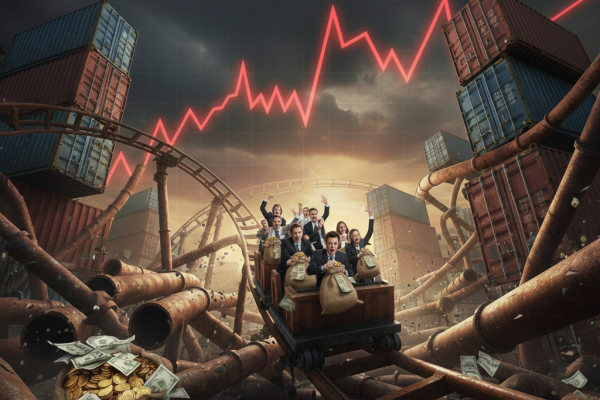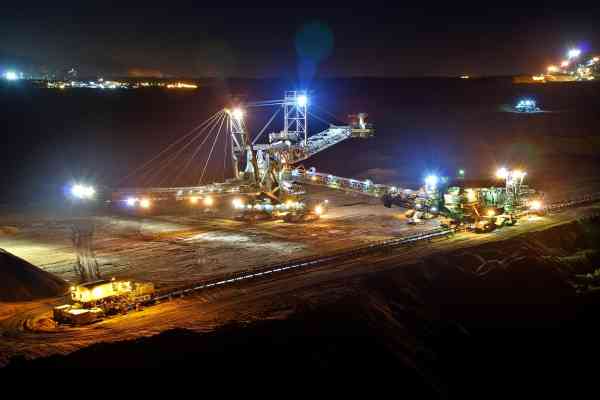October 7th, 2020 | 12:24 CEST
BP, Royal Dutch Shell, Saturn Oil & Gas: The rebound with an announcement!
When someone talks about the largest commodities market in the world, they mean the oil market. Every day, almost 100 million barrels of black gold are produced and delivered worldwide, even though Elon Musk adamantly claims "Oil is out!” - He would be particularly well advised to find out how many oil products are used in a Tesla. More than 300 components are made of oil derivatives. According to British Petroleum, undoubtedly one of the major players in the industry, the global oil demand peaked in 2019. In its annual energy outlook, the energy company predicts a global decline in oil demand but a strong gas demand until 2050. Renewable energies are the fastest-growing energy sources over the next 30 years.
time to read: 3 minutes
|
Author:
André Will-Laudien
ISIN:
CA80412L1076 , GB0007980591 , GB00B03MLX29
Table of contents:

"[...] The Oxbow Asset now delivers a substantial free cash flow stream to internally fund our impactful drilling and workover programs. [...]" John Jeffrey, CEO, Saturn Oil + Gas Inc.
Author
André Will-Laudien
Born in Munich, he first studied economics and graduated in business administration at the Ludwig-Maximilians-University in 1995. As he was involved with the stock market at a very early stage, he now has more than 30 years of experience in the capital markets.
Tag cloud
Shares cloud
British Petroleum plc (BP) - Who is correct with the forecast?
It is sometimes not decisive whether BP has miscalculated by 10 or 20 years. At its core is the opinion that large oil producers, in particular, must now look for alternatives to their outdated business model. For years now, they have been investing free cash flows in alternative energy production, primarily regenerative. BP, in particular, needed a greener coat of paint after the Deepwater Horizon disaster, and the latest company policy indicates that this mindset is being reinforced.
With a balance sheet total of just under EUR 300 billion, BP is one of the 10 largest oil and energy companies in the world. Its net profit in 2019 was EUR 16.7 billion and has fallen to around EUR 4.5 billion in the current year, which is an even quarter. Although the share price was able to stabilize after the March sell-off, it recently fell back to below EUR 2.50. The high in the last 3 years was 6.75 EUR - a 65% loss. However, the dividend yield is still just under 8% even after the two-time reduction. Goldman Sachs sees a 70% chance in the BP share for the next 2 years.
Royal Dutch Shell plc - Under the wheels!
Industry colleague, Royal Dutch Shell, has not fared much better. The British-Dutch oil company is one size bigger than BP. Shell has total assets of over EUR 360 billion and a result of EUR 25.5 billion in 2019. Here, too, earnings are expected to be averaged to around EUR 8 billion, and the dividend yield will drop to around 5%. The share price has fallen just as sharply as at BP, a full 65% to the 3-year high of EUR 29.70.
Shell plans to lay off a total of up to 9,000 employees as part of a major overhaul to shift the focus to low-carbon energy by 2022. This will affect a good 11% of the total workforce of 83,000. Shell expects the reorganization to bring annual cost savings of up to EUR 2.5 billion by 2022. The shareholders will be happy, but the employees will have to tremble for the time being as to whether these steps will mean the end of the banner. There have been a lot of buy recommendations recently, but this is probably because the share price is well below the long-term average prices of all oil giants. The oil price will be important; it shouldn't see the lows of May 2020 again anytime soon.
Saturn Oil & Gas: Small but nice.
A real alternative to the oil giants is the small Saturn Oil & Gas from Canada. The company produced 1,400 barrels a day at peak production before Corona and is looking for expansion opportunities. The production price is around 12 USD operationally, which still provides a nice margin on current levels production. Of course, the company also conducts forward business and tries to stabilize its income via the forward curve. This increases planning reliability for future cash flows from oil sales and serves to service all financial liabilities.
The company's largest properties are located in West Central Saskatchewan. The oil fields offer good access to the underground deposits of Viking light oil. We also consider the regulatory environment to be "oil-friendly" - this means that production here will last several years until new developments are made to renew or expand the portfolio of deposits. The falling US oil price of WTI has put many local companies in financial difficulties, which puts the management of Saturn Oil & Gas in an acquisition role. If demand remains at a low level worldwide due to the COVID pandemic, there will be good buying opportunities among competitors.
Conclusion: with 234.6 million shares outstanding and a price of CAD 0.10, the company is currently valued at just under EUR 15 million, while the share price was already at a high of CAD 0.30. Jim Payne, the CEO of dynaCERT with whom we are familiar, recently bought shares. One may expect that in the event of a general market turnaround in the oil sector, very rapid upward price movements will take place, as the stock is tight and hardly any shares are available at the current level. With some nerves and timing fortune, the time is ripe for a speculative entry. Goldman Sachs blows with the oil multinationals to the attack. Of course, we are actively watching this.
Conflict of interest
Pursuant to §85 of the German Securities Trading Act (WpHG), we point out that Apaton Finance GmbH as well as partners, authors or employees of Apaton Finance GmbH (hereinafter referred to as "Relevant Persons") may in the future hold shares or other financial instruments of the mentioned companies or will bet on rising or falling on rising or falling prices and therefore a conflict of interest may arise in the future. conflict of interest may arise in the future. The Relevant Persons reserve the shares or other financial instruments of the company at any time (hereinafter referred to as the company at any time (hereinafter referred to as a "Transaction"). "Transaction"). Transactions may under certain circumstances influence the respective price of the shares or other financial instruments of the of the Company.
Furthermore, Apaton Finance GmbH reserves the right to enter into future relationships with the company or with third parties in relation to reports on the company. with regard to reports on the company, which are published within the scope of the Apaton Finance GmbH as well as in the social media, on partner sites or in e-mails, on partner sites or in e-mails. The above references to existing conflicts of interest apply apply to all types and forms of publication used by Apaton Finance GmbH uses for publications on companies.
Risk notice
Apaton Finance GmbH offers editors, agencies and companies the opportunity to publish commentaries, interviews, summaries, news and etc. on news.financial. These contents serve information for readers and does not constitute a call to action or recommendations, neither explicitly nor implicitly. implicitly, they are to be understood as an assurance of possible price be understood. The contents do not replace individual professional investment advice and do not constitute an offer to sell the share(s) offer to sell the share(s) or other financial instrument(s) in question, nor is it an nor an invitation to buy or sell such.
The content is expressly not a financial analysis, but rather financial analysis, but rather journalistic or advertising texts. Readers or users who make investment decisions or carry out transactions on the basis decisions or transactions on the basis of the information provided here act completely at their own risk. There is no contractual relationship between between Apaton Finance GmbH and its readers or the users of its offers. users of its offers, as our information only refers to the company and not to the company, but not to the investment decision of the reader or user. or user.
The acquisition of financial instruments entails high risks that can lead to the total loss of the capital invested. The information published by Apaton Finance GmbH and its authors are based on careful research on careful research, nevertheless no liability for financial losses financial losses or a content guarantee for topicality, correctness, adequacy and completeness of the contents offered here. contents offered here. Please also note our Terms of use.




